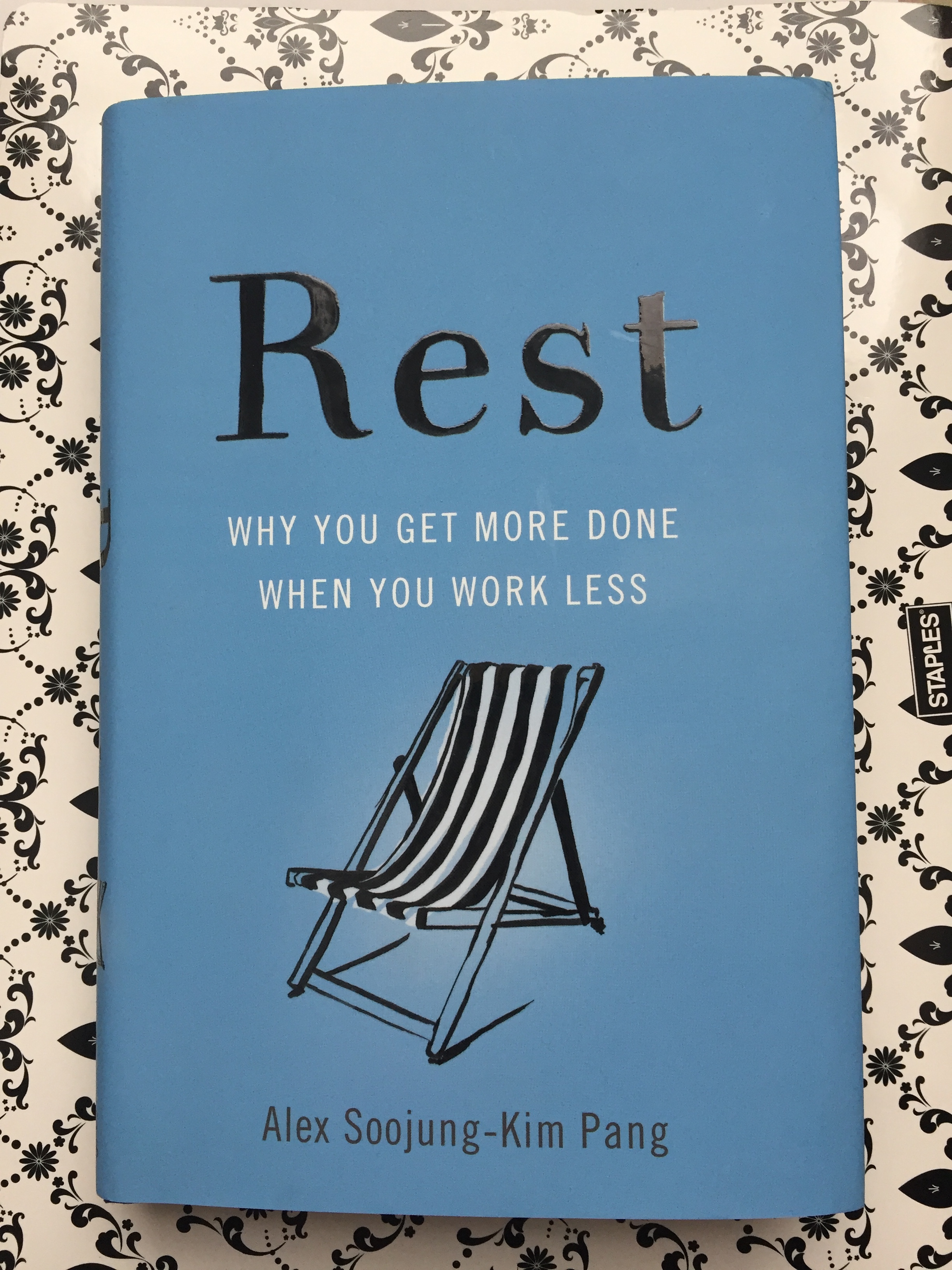There are books I read that I find helpful, and then there are books I read that I know are going to change something significant in my life. This book is the latter. I picked up Rest by Alex Soojung-Kim Pang because a) I'm obsessed with books on habits, productivity, and finding calm, as most of you know, and b) because I hadn't seen this topic tackled so extensively before. A book on rest, not sleep (though there's a chapter on that). That's an important distinction because rest can be active and purposeful. Rest can be magical.
As I've mentioned before, I have a tendency to suffer with writer's block and burnout. I figured that's a natural thing because I've spent the last 8 years writing about 300,000 words a year under deadline. I love my job but that doesn't mean it doesn't get stressful and overwhelming. So over the last few years, I've taken a big interest in productivity, creativity, and habits and have read books like Deep Work, Big Magic, Better Than Before, Essentialism, etc. It's an ongoing journey, so when I saw the premise and chapter titles of this book, I knew I needed to read it.
So what's my verdict? My highest recommendation. I think anyone in any type of creative, scientific, or business field should pick this up. There was so much great information, all backed up by extensive real world examples of other creatives, scientists, and business leaders along with the science and research studies that underline the points. The science parts are particularly helpful because it tells you how and why these methods work. (And gives you the justification for doing them. Science says so! lol)
I know I'll be taking away things like the four hour work window for focused/deep work, stopping in the middle while you still know what's going to happen next so your subconscious can work on it, having a morning routine and getting my writing done FIRST so that any rest or play later in the day is done without guilt. Those are just a few.
There were so many great nuggets of wisdom, I can't list them all here. But I will say that using a lot of these methods over the last week has resulted in a week of steady writing, hitting my word count every day, and having no stress about it. It's been fantastic.
So, I suggest you check out the book, but I also wanted to list the chapter titles so you can see the range of topics covered.
Part 1: Stimulating Creativity
- Four Hours
- Morning Routine
- Walk
- Nap
- Stop
- Sleep
Part 2: Sustaining Creativity
- Recovery
- Exercise
- Deep Play
- Sabbaticals
About the book (back cover):
For most of us, overwork is the new normal and rest is an afterthought. In our busy lives, rest is defined as the absence of work: late-night TV binges, hours spent trawling the internet, something to do once we've finished everything else on our to-do lists. But dismissing rest stifles our ability to think creatively and truly recharge.
In Rest, Silicon Valley consultant Alex Pang argues that we can be more successful in all areas of our lives by recognizing the importance of rest: working better does not mean working more, it means working less and resting better. Treating rest as a passive activity secondary to work undermines our chances for a rewarding and meaningful life. Whether by making space for daily naps, as Winston Churchill did during World War II; going on hours-long strolls like Charles Darwin; or spending a week alone in a cabin like Bill Gates, pursuing what Pang calls "deliberate rest" is the true key to fulfillment and creative success. Drawing on rigorous scientific evidence and revelatory historical examples, Rest overturns everything our culture has taught us about work and shows that only by resting better can we start living better.
Now, go get a copy and get some rest this weekend! ;)











